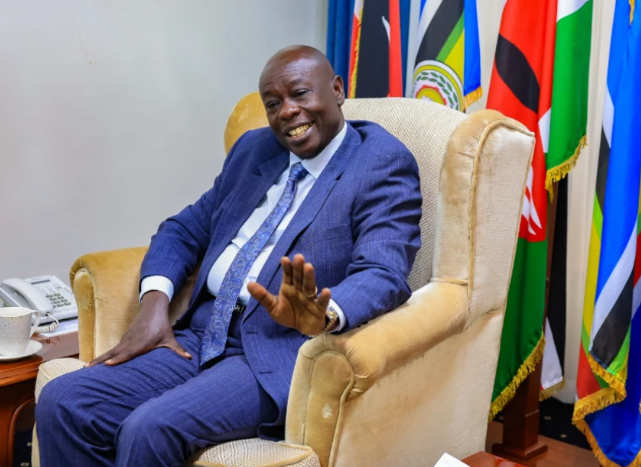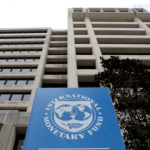A lawyer has filed a petition at the Eldoret High Court seeking to stop Chief Justice Martha Koome, or anyone acting on her behalf, from swearing in any nominated Deputy President if the Senate confirms the impeachment of current officeholder Rigathi Gachagua.
The petition, filed by Morara Omoke and marked as urgent, challenges the impeachment on several grounds, including claims of irregular signature collection from MPs, lack of sufficient public participation, violations of constitutional provisions, and the alleged exclusion of the Deputy President from government functions.
“All these actions were deliberately orchestrated, ultimately leading to the impeachment motion introduced on October 1, 2024, by Hon. Mutuse Eckomas Mwengi, the Member of Parliament for Kibwezi West Constituency,” Omoke argued in court documents obtained by *Citizen Digital*.
Omoke further warned that the events surrounding the impeachment posed a serious threat to national unity and could potentially trigger a recurrence of the violence witnessed during the 2007 post-election period. He pointed out that 281 MPs voted in favor of the impeachment motion.
According to Omoke, the impeachment process lacked thoughtful consideration and failed to involve meaningful nationwide public participation. “A Deputy President is an elected leader, and their removal from office must be driven by the people, with consultation across the entire nation,” he argued.
He criticized MP Mwengi, who tabled the motion, for failing to conduct any public engagement before collecting signatures. Omoke also alleged that the process of gathering signatures for the impeachment was flawed, accusing it of being marred by bribery and lacking transparency. He claimed that MPs were coerced with threats of stalling their constituency projects if they did not support the motion.
In addition, Omoke pointed to allegations of forgery, highlighting Mwala MP Vincent Musyoka’s surprise at seeing his name on the list of supporters, despite not signing it. “The petitioner asserts that the signatures of Hon. Emmanuel Wangwe and Hon. Bernard M. Shinali were forged. The handwriting for both names and signatures is identical, clearly showing they were written by the same person,” the court documents stated.
“Similarly, the signatures of Hon. Lilian Siyoi and Hon. Paul K. Chebor were written by the same individual. Moreover, Hon. Wario Guyo’s name appears twice, at No. 121 and No. 177, with two different signatures. This demonstrates the extent of forgery that took place during the signature collection for the impeachment motion.”
Citing that one of the grounds for Deputy President Rigathi Gachagua’s impeachment is his defense of the rights of the people in the Mt. Kenya region, lawyer Morara Omoke emphasized that targeting Gachagua based on his regional support undermines the rights of all communities. Omoke further argued that Gachagua’s focus on reforms in sectors like coffee, milk, and tea is regional in nature due to his role as assigned by President William Ruto, and it is unfair for him to be impeached for fulfilling these duties.
He also pointed out that National Assembly Deputy Speaker Gladys Boss had announced her intent to lead the impeachment efforts on September 23, 2024, implying that the outcome was predetermined even before the motion was formally tabled. “Similarly, on September 29, 2024, the Speaker of the National Assembly, Moses Masika Wetang’ula, during a church event at Wamunyu Catholic Church in Machakos County, publicly supported the impeachment motion before it had been introduced for debate,” Omoke argued.
Omoke accused Wetang’ula of abandoning neutrality by openly backing Gachagua’s removal based on accusations of inflammatory public statements, even before the motion was discussed in the House.
In his petition, the Eldoret-based lawyer is seeking conservatory orders to prevent Chief Justice Martha Koome, or any person acting under her authority, from swearing in any nominated Deputy President if the impeachment motion succeeds. “A conservatory order should be issued restraining the Chief Justice or any individual acting on her behalf, including the Deputy Chief Justice, from swearing in a nominated Deputy President to replace the current officeholder under Article 149(1) of the Constitution of Kenya, 2010, pending the hearing and determination of this application,” the court documents stated.
Omoke argued that Gachagua should remain in office and continue to execute his duties until the petition is heard and determined. He further requested that the petition be consolidated with other cases related to the Deputy President’s impeachment and be treated as the lead case. Additionally, he called for the President of Kenya to submit an affidavit clarifying whether he had any grievances with the Deputy President.
He concluded by requesting that the court certify that the petition raises substantial constitutional questions of public importance and that it be referred to the Chief Justice to form a bench of at least three judges, as required under Article 165 (4) of the Constitution. Omoke also called for the petition to be subjected to a public hearing accessible to all Kenyans.



